A representative from PanNature suggested clearly defining the non-profit status of science and technology organizations to facilitate research, technology transfer, and application. This clarity would also enhance international collaboration and attract funding.

World Bank team observes wildlife trade first-hand
While the authorities, international and local wildlife protection organizations are making every effort to carry out campaigns, protect, and conserve rare wildlife species; across the country, many wild animals are killed every day and those stores trading in wildlife products that are still operating freely and beyond the law.
At the roundabout in the centre of Cho Ra town, Ba Be, Bac Kan Province, a few steps away from Ba Be district’s bus station, there is a store specializing in trading of products made from rare wild animals such as bear, cobra, pangolins, monitor lizards, and deer. Locals said that the store has existed for many years, meeting customers’ demands for meat products from wildlife, medicinal wine jars containing wildlife.
The store owner advertises that: “If you want wildlife meat, for example, porcupine, deer, civets and birds, any kind is available. They are all taken from Ba Be forest.”
At the store, we found a lot of wildlife in wine jars, for example, heads and limbs of bears, cobra, and deer stomachs. In addition, bone balm from various wild animals is also traded openly here.
How can such a store trading products from protected wildlife exist in the centre of Ba Be District and operate freely and beyond the law?
The following photographs were taken at the store by ThienNhien.Net.
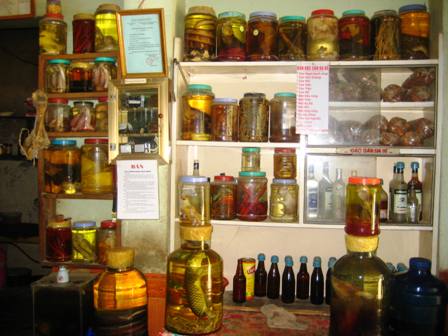

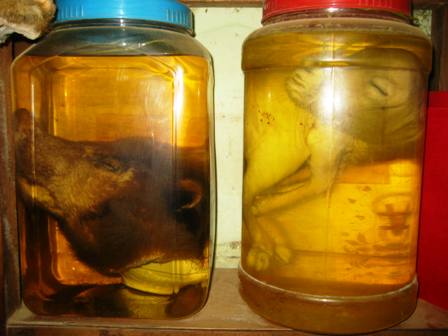
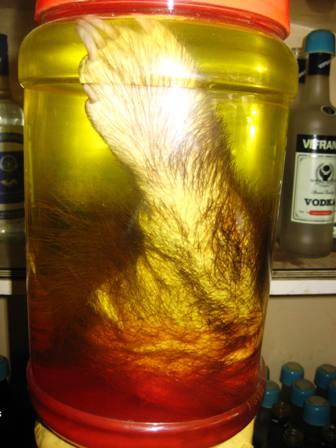
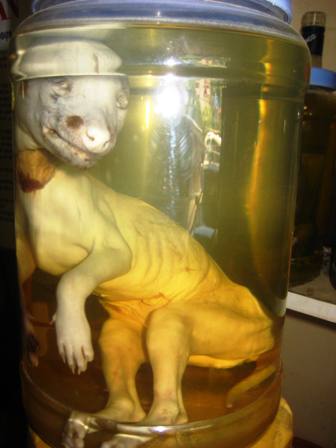
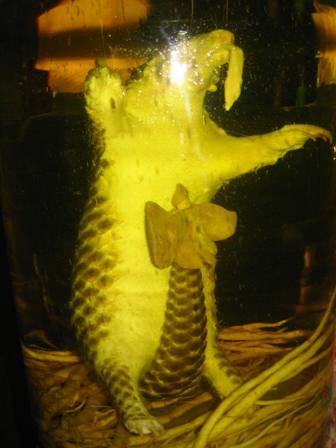
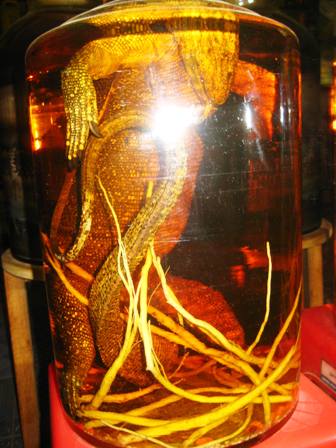
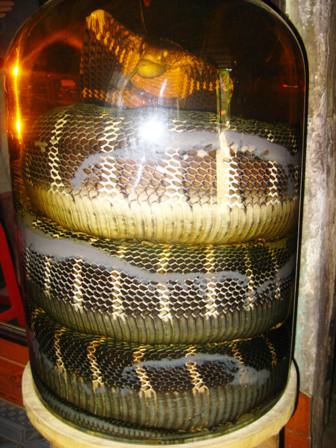
Original article in Vietnamese can be read on ThienNhien.Net. Translation into English: World Bank Vietnam. The English translation was published on the Babbler No.38.
NOTE: These photos were taken during the trip of PanNature and WB/CEPF supervision mission team to Ba Be.



